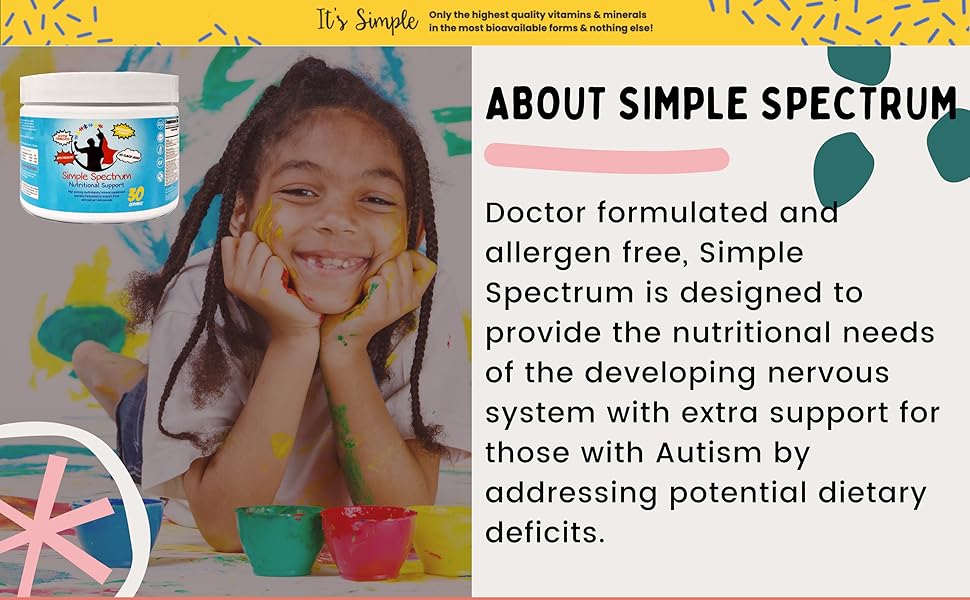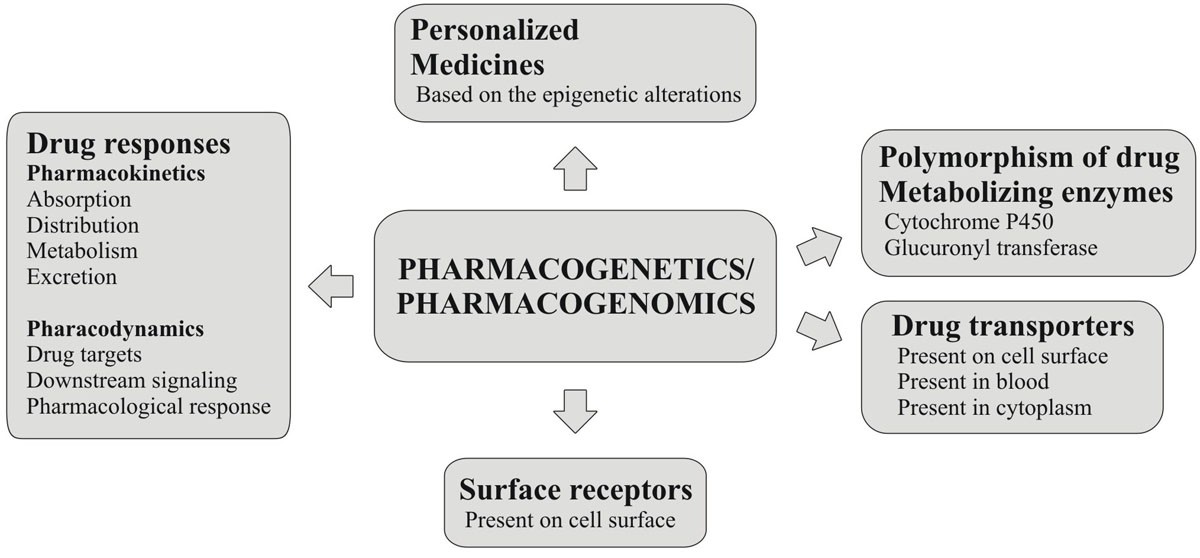HEALTH
Mega-Personal.net Health Archives: A Resource for Informed Decision-Making in Healthcare

The healthcare industry is evolving rapidly, with new technologies and treatments emerging every day. Making informed healthcare decisions is no longer optional—it’s essential. That’s where the Mega-Personal.net Health Archives shine. This powerful resource is your key to navigating complex medical landscapes, empowering you with knowledge to make better choices for yourself and your loved ones.
What Are the Mega-Personal.net Health Archives?
The Mega-Personal.net Health Archives is a dedicated section of the Mega-Personal.net platform, designed to provide reliable, well-researched healthcare information. It bridges the gap between accessible science and practical advice, ensuring users can take charge of their health with confidence.
Whether you’re researching treatment options, comparing healthcare services, or seeking the latest medical breakthroughs, this archive provides a centralized hub of information for curious readers, concerned patients, and mindful caregivers alike.
Why the Health Archives Are a Game Changer
1. Accurate and Credible Information
When it comes to health, reliable information is non-negotiable. The Health Archives collate data from trusted medical sources and expert contributors to present verified content. This means you can rely on the information without second-guessing its accuracy.
2. User-Friendly Design
The Health Archives are structured thoughtfully, allowing users to find the information they need without stress. Categories, keywords, and intuitive navigation simplify the search process, making it accessible even if you’re not tech-savvy.
3. Practical Insights for Everyday Health
From fitness tips to managing chronic conditions, the Health Archives don’t just present facts—they offer actionable advice you can implement in your daily life.
4. Empowering Patients and Families
The archive equips patients with questions to ask their doctors, insights into medical procedures, and guidance on advocating for themselves or their loved ones.
How the Health Archives Support Key Areas of Healthcare
Mega-Personal.net Health Archives cover a wide array of healthcare topics to suit various needs. Here’s a deeper look at what you can expect:
1. Disease Prevention and Wellness
Prevention is better than cure, and the Health Archives focus on empowering users to lead healthier lives. Topics include:
- Nutrition tips for a balanced diet
- Simple exercises to stay active
- Preventative health checkups and screenings
- Recognition of early symptoms for common illnesses
2. Treatments and Procedures
Understanding medical treatments can seem daunting, but the Mega-Personal.net Health Archives demystify the process:
- Detailed explanations of common treatments, from physical therapy to chemotherapy.
- Pros and cons of various treatment options, helping you weigh your choices.
- Insights into recovery times and side effects.
3. Navigating Healthcare Systems
The healthcare systems can be notoriously complex. The archives simplify this process with articles on:
- Choosing the right healthcare provider
- Comparing health insurance plans
- Understanding medical bills and reducing healthcare costs
- Patient rights and medical ethics
4. Mental Health
Mental health is an essential aspect of overall well-being. The Health Archives cover:
- Signs of anxiety, depression, and other conditions
- Tips for stress management and mindfulness exercises
- Resources for seeking professional mental health support, such as therapy or helplines.
5. Breakthroughs in Medicine
Stay informed about cutting-edge treatments and groundbreaking research with summaries of:
- Advances in gene therapy
- The latest developments in personalized medicine
- Innovations in telemedicine and digital health tools
6. Community Support and Advocacy
The Mega-Personal.net Health Archives also highlight how to find or create communities to share your health struggles and triumphs. Examples include:
- Online support groups for chronic illnesses
- Advocacy tips for raising awareness about rare diseases
- Blogging platforms for sharing personal health journeys
Why Information Matters in Healthcare
Access to proper information can literally save lives. According to the World Health Organization (WHO), misinformation in healthcare leads to delays in treatment, increased health risks, and poor patient outcomes. On the flip side, well-informed patients are better equipped to:
- Seek the right treatments faster.
- Prevent medical errors.
- Advocate for better and more equitable healthcare services.
Mega-Personal.net Health Archives address this critical need by ensuring users can access accurate, digestible, and up-to-date information across a broad spectrum of health topics.
How to Use the Health Archives
Using the Mega-Personal.net Health Archives is simple:
- Browse by Category
Every article is grouped under relevant categories such as “Heart Health,” “Women’s Health,” or “Technology & Innovations.”
- Search with Keywords
Use specific terms like “diabetes care” or “stress management” to quickly find what you’re looking for.
- Save for Future Reference
Bookmark articles or download summaries to revisit the information whenever needed.
- Share with Others
Health decisions often involve family members and healthcare providers. The archive allows you to easily share the articles with those who might benefit.
Unlock a Healthier Future Today
Information is power, especially in healthcare. By regularly exploring the Mega-Personal.net Health Archives, you equip yourself with tools to make informed decisions, advocate for better healthcare, and lead a healthier lifestyle.
Remember, your health is your most valuable asset. Stay informed, stay empowered.
For more insights, visit the Mega-Personal.net Health Archives today and start your journey toward smarter healthcare decisions.
HEALTH
Spectrum Multivitamin: Nutrition for Child Development

As parents, making sure our children get the right nutrients for their growth and development is a top priority. Multivitamins play a crucial role in filling nutritional gaps, especially for picky eaters or those with dietary restrictions. Spectrum multivitamin is designed to provide essential nutrients that support a child’s overall development, making it a helpful part of their daily routine.
The spectrum multivitamin is full of different vitamins and minerals that are essential for children’s health. These nutrients help with growth, boost the immune system, and improve brain function. In the sections that follow, we will explore the unique benefits of spectrum multivitamin for kids, the role of spectrum vitamins and minerals, and how to choose the right multivitamin for your child.
Why Choose Spectrum Multivitamin for Kids?
Choosing the right multivitamin for your child can be overwhelming, but spectrum multivitamin has several benefits that make it a great choice:
- Tailored for Children: Spectrum multivitamins are specifically formulated to meet the nutritional needs of growing children, ensuring they receive the right balance of vitamins and minerals.
- Supports Growth and Development: These multivitamins contain essential nutrients like calcium, vitamin D, and iron, which are crucial for bone health and cognitive development.
- Boosts Immune System: With vitamins like C and E, spectrum multivitamins help strengthen the immune system, keeping children healthier and more resilient to common illnesses.
According to WebMD, multivitamins can fill nutritional gaps and provide a safety net for essential nutrients that might be missing from a child’s diet. This is particularly important during growth spurts when their nutritional needs are higher.
Understanding Spectrum Vitamins and Minerals
Spectrum vitamins and minerals are important parts of a balanced diet, especially for children. These nutrients help with body functions and overall health. Spectrum vitamins include a wide range of vitamins such as A, B, C, D, and E, each contributing to different aspects of health. Minerals like calcium, iron, and magnesium are equally important, aiding in bone development, oxygen transportation, and energy production.
For children, having a diet rich in these vitamins and minerals is important for their growth. According to Harvard’s Nutrition Source, these nutrients help in building strong bones, boosting the immune system, and supporting brain development. Ensuring that children receive the right amount of spectrum vitamins and minerals can make a significant difference in their health and development.
Simple Spectrum Multivitamin: A Comprehensive Solution
The simple spectrum multivitamin provides a full solution for children’s nutrition needs. It is made to give a balanced mix of important vitamins and minerals just for kids. This formulation ensures that children receive the nutrients they need for optimal growth and development.
Some of the features that set the simple spectrum multivitamin apart include:
- Balanced Nutrient Profile: It contains a well-rounded mix of vitamins and minerals that cater to the specific needs of children.
- Easy to Digest: Formulated to be gentle on the stomach, making it suitable for daily use.
- Supports Overall Health: Helps in boosting immunity, enhancing cognitive function, and promoting strong bones.
Choosing a simple spectrum multivitamin can be a great step towards ensuring that your child receives all the essential nutrients they need in their formative years, setting a foundation for a healthy future. For more information on these supplements, you can visit Simple Spectrum Supplement’s FAQ page.
Full Spectrum Vitamins and Support: Meeting All Nutritional Needs
When it comes to ensuring your child receives all the essential nutrients, full spectrum vitamins and spectrum support vitamins play an important role. These vitamins are designed to provide a comprehensive nutritional profile that supports overall health and well-being for children.
Here’s why full spectrum vitamins help:
- Comprehensive Nutritional Profile: Full spectrum vitamins cover a wide range of nutrients, ensuring that children receive all the essential vitamins and minerals they need for healthy development.
- Enhanced Health and Well-being: These vitamins support various bodily functions, from boosting the immune system to promoting strong bones and teeth.
- Balanced Diet Support: They help fill any nutritional gaps that might exist in a child’s diet, ensuring balanced growth.
Specific vitamins, such as vitamin D, calcium, and iron, are particularly important for child development. Full spectrum vitamins ensure these are adequately included, supporting everything from brain development to energy levels.
Choosing the Right Spectrum Needs Multivitamin
Finding the right spectrum needs multivitamin for your child can be a tough task. But with the right help, you can make a smart choice for your child’s health.
Here are some tips to consider when selecting a multivitamin:
- Check the Label: Ensure the multivitamin provides a comprehensive range of vitamins and minerals suitable for your child’s age.
- Consult a Healthcare Professional: Speak with a pediatrician or a nutritionist to understand your child’s specific nutritional needs.
- Look for Quality: Choose multivitamins from reputable brands that adhere to high manufacturing standards.
- Consider Dietary Restrictions: If your child has any allergies or dietary restrictions, ensure the multivitamin is free from allergens or unwanted ingredients.
For more information on choosing the right multivitamin, you can refer to resources like WebMD’s guide on selecting multivitamins.
The Benefits of Simple Spectrum Vitamin Supplement
Today, making sure children get all the nutrients they need can be hard. This is where a simple spectrum vitamin supplement can make a significant difference. Here are some benefits:
- Fills Nutritional Gaps: Even with a balanced diet, children may miss out on essential nutrients. A simple spectrum vitamin supplement can help bridge these gaps, ensuring they receive a comprehensive range of vitamins and minerals.
- Supports Growth and Development: These supplements are formulated to support the physical and mental development of children, promoting healthy growth.
- Easy to Incorporate: Simple spectrum vitamin supplements are designed to be easy for children to take, whether in chewable form or as a liquid, making them a convenient addition to daily routines.
- Boosts Immune System: By providing essential nutrients, these supplements can help strengthen the immune system, keeping children healthier and more resilient.
Final Thoughts: The Importance of Spectrum Multivitamin
In summary, spectrum multivitamins provide a full solution to help your child’s health, growth, and development. By incorporating these into their daily routine, you can help ensure they receive the nutrients they need to thrive. They give all the important nutrients that can be hard to get from just food. They support both physical growth and cognitive development, crucial during childhood, and help maintain a balanced diet, which is vital for long-term health.
As parents, it’s important to consider the nutritional needs of your children carefully. By integrating spectrum multivitamins, you can support their development and set them on a path to a healthier future.
HEALTH
Spectrum Multivitamin: Nutrition for Child Development

As parents, making sure our children get the right nutrients for their growth and development is a top priority. Multivitamins play a crucial role in filling nutritional gaps, especially for picky eaters or those with dietary restrictions. Spectrum multivitamin is designed to provide essential nutrients that support a child’s overall development, making it a helpful part of their daily routine.
The spectrum multivitamin is full of different vitamins and minerals that are essential for children’s health. These nutrients help with growth, boost the immune system, and improve brain function. In the sections that follow, we will explore the unique benefits of spectrum multivitamin for kids, the role of spectrum vitamins and minerals, and how to choose the right multivitamin for your child.
Why Choose Spectrum Multivitamin for Kids?
Choosing the right multivitamin for your child can be overwhelming, but spectrum multivitamin has several benefits that make it a great choice:
- Tailored for Children: Spectrum multivitamins are specifically formulated to meet the nutritional needs of growing children, ensuring they receive the right balance of vitamins and minerals.
- Supports Growth and Development: These multivitamins contain essential nutrients like calcium, vitamin D, and iron, which are crucial for bone health and cognitive development.
- Boosts Immune System: With vitamins like C and E, spectrum multivitamins help strengthen the immune system, keeping children healthier and more resilient to common illnesses.
According to WebMD, multivitamins can fill nutritional gaps and provide a safety net for essential nutrients that might be missing from a child’s diet. This is particularly important during growth spurts when their nutritional needs are higher.
Understanding Spectrum Vitamins and Minerals
Spectrum vitamins and minerals are important parts of a balanced diet, especially for children. These nutrients help with body functions and overall health. Spectrum vitamins include a wide range of vitamins such as A, B, C, D, and E, each contributing to different aspects of health. Minerals like calcium, iron, and magnesium are equally important, aiding in bone development, oxygen transportation, and energy production.
For children, having a diet rich in these vitamins and minerals is important for their growth. According to Harvard’s Nutrition Source, these nutrients help in building strong bones, boosting the immune system, and supporting brain development. Ensuring that children receive the right amount of spectrum vitamins and minerals can make a significant difference in their health and development.
Simple Spectrum Multivitamin: A Comprehensive Solution
The simple spectrum multivitamin provides a full solution for children’s nutrition needs. It is made to give a balanced mix of important vitamins and minerals just for kids. This formulation ensures that children receive the nutrients they need for optimal growth and development.
Some of the features that set the simple spectrum multivitamin apart include:
- Balanced Nutrient Profile: It contains a well-rounded mix of vitamins and minerals that cater to the specific needs of children.
- Easy to Digest: Formulated to be gentle on the stomach, making it suitable for daily use.
- Supports Overall Health: Helps in boosting immunity, enhancing cognitive function, and promoting strong bones.
Choosing a simple spectrum multivitamin can be a great step towards ensuring that your child receives all the essential nutrients they need in their formative years, setting a foundation for a healthy future. For more information on these supplements, you can visit Simple Spectrum Supplement’s FAQ page.
Full Spectrum Vitamins and Support: Meeting All Nutritional Needs
When it comes to ensuring your child receives all the essential nutrients, full spectrum vitamins and spectrum support vitamins play an important role. These vitamins are designed to provide a comprehensive nutritional profile that supports overall health and well-being for children.
Here’s why full spectrum vitamins help:
- Comprehensive Nutritional Profile: Full spectrum vitamins cover a wide range of nutrients, ensuring that children receive all the essential vitamins and minerals they need for healthy development.
- Enhanced Health and Well-being: These vitamins support various bodily functions, from boosting the immune system to promoting strong bones and teeth.
- Balanced Diet Support: They help fill any nutritional gaps that might exist in a child’s diet, ensuring balanced growth.
Specific vitamins, such as vitamin D, calcium, and iron, are particularly important for child development. Full spectrum vitamins ensure these are adequately included, supporting everything from brain development to energy levels.
Choosing the Right Spectrum Needs Multivitamin
Finding the right spectrum needs multivitamin for your child can be a tough task. But with the right help, you can make a smart choice for your child’s health.
Here are some tips to consider when selecting a multivitamin:
- Check the Label: Ensure the multivitamin provides a comprehensive range of vitamins and minerals suitable for your child’s age.
- Consult a Healthcare Professional: Speak with a pediatrician or a nutritionist to understand your child’s specific nutritional needs.
- Look for Quality: Choose multivitamins from reputable brands that adhere to high manufacturing standards.
- Consider Dietary Restrictions: If your child has any allergies or dietary restrictions, ensure the multivitamin is free from allergens or unwanted ingredients.
For more information on choosing the right multivitamin, you can refer to resources like WebMD’s guide on selecting multivitamins.
The Benefits of Simple Spectrum Vitamin Supplement
Today, making sure children get all the nutrients they need can be hard. This is where a simple spectrum vitamin supplement can make a significant difference. Here are some benefits:
- Fills Nutritional Gaps: Even with a balanced diet, children may miss out on essential nutrients. A simple spectrum vitamin supplement can help bridge these gaps, ensuring they receive a comprehensive range of vitamins and minerals.
- Supports Growth and Development: These supplements are formulated to support the physical and mental development of children, promoting healthy growth.
- Easy to Incorporate: Simple spectrum vitamin supplements are designed to be easy for children to take, whether in chewable form or as a liquid, making them a convenient addition to daily routines.
- Boosts Immune System: By providing essential nutrients, these supplements can help strengthen the immune system, keeping children healthier and more resilient.
Final Thoughts: The Importance of Spectrum Multivitamin
In summary, spectrum multivitamins provide a full solution to help your child’s health, growth, and development. By incorporating these into their daily routine, you can help ensure they receive the nutrients they need to thrive. They give all the important nutrients that can be hard to get from just food. They support both physical growth and cognitive development, crucial during childhood, and help maintain a balanced diet, which is vital for long-term health.
As parents, it’s important to consider the nutritional needs of your children carefully. By integrating spectrum multivitamins, you can support their development and set them on a path to a healthier future.
HEALTH
Personalized Medicine: The Role of Pharmacokinetics

Personalized Medicine in Modern Healthcare
Personalized medicine is a crucial aspect of modern healthcare. It utilizes personal data to create tailored treatment programs for each patient. This strategy deviates from the conventional “one-size-fits-all” approach by considering environmental, lifestyle, and hereditary factors to enhance therapeutic results and reduce potential adverse effects.
One critical component of this approach is clinical Pharmacokinetics New York, which examines how a drug moves through the body, predicting its absorption, distribution, metabolism, and excretion. Personalized medicine, a powerful tool in combating diseases worldwide, aims to improve efficacy, reduce unnecessary treatments, and enhance patient quality of life by tailoring drug regimens according to individual differences. Further insights can be gained from resources like the NIH’s comprehensive exploration of personalized medicine.
Understanding Pharmacokinetics
Pharmacokinetics, the study of how drugs are processed in the body, is fundamental to personalized therapy. It encompasses several critical processes: absorption, which determines how a drug is taken up into the bloodstream; distribution, which indicates how the drug spreads throughout the body’s tissues; metabolism, which transforms the drug into active or inactive substances; and excretion, which outlines how a drug or its metabolites are eliminated from the body.
By comprehending these processes, healthcare providers can predict how different patients will respond to medications, which is essential for tailoring drug choices and dosing. For instance, individuals may metabolize a drug at varying rates due to genetic differences. Recognizing these variations can prevent adverse reactions and improve therapeutic effectiveness. This accuracy ensures that patients receive the finest care possible. Further reading on the importance of pharmacokinetics can be found in the FDA’s detailed guide on pharmacokinetics and pharmacodynamics basics.
The Role of Pharmacogenomics
Pharmacogenomics is integral to personalized medicine, focusing on how genetic variation affects individual drug responses. By understanding genetic differences, healthcare providers can predict how well patients will respond to a particular medication or whether they might suffer adverse effects. This information makes it possible to create customized treatments considering metabolic and genetic variables affecting medication safety and effectiveness.
Pharmacogenomics has been successfully applied in various fields, such as oncology, where genetic testing helps determine the most effective chemotherapy regimen. In cardiology, genetic tests help identify the best anticoagulant therapy for individual patients. These applications underscore the transformative potential of integrating pharmacogenomics with pharmacokinetics, paving the way for safer, more effective personalized therapies.
Current Challenges and Limitations
Despite personalized medicine’s potential, several barriers remain. The cost of developing and administering tailored therapies can be prohibitive, placing financial strain on healthcare systems and patients. Furthermore, the complexity of interpreting genetic data requires specialized knowledge and resources, limiting widespread implementation.
Moreover, ethical and regulatory challenges must be addressed, particularly concerning the privacy and security of genetic data. Patients and providers express concerns about how this sensitive information is used and shared. Balancing these concerns with the benefits of personalized medicine is crucial for its successful incorporation into routine healthcare practice.
Innovations Driving Change
Technological advancements are fueling the progression of personalized medicine. Innovations in drug monitoring and delivery systems enable more precise control of medication regimens, allowing for real-time adjustments based on patient responses. Artificial intelligence and machine learning are also increasingly used to improve treatment plans, predict how patients react to medications, and improve healthcare outcomes.
These technologies offer the potential to make personalized medicine more accessible and practical, streamlining the process of developing and delivering individualized treatment plans. As these innovations continue to evolve, they are expected to play a critical role in the widespread adoption and success of personalized medicine.
Implications for Patients and Healthcare Providers
The rise of personalized medicine empowers patients by involving them more actively in their healthcare decisions. By tailoring treatments to individual needs, customized medicine encourages greater adherence to medication protocols and enhances patient engagement. When patients comprehend how their treatment programs address their unique problems and concerns, they are likelier to stick with them.
For healthcare providers, adopting personalized medicine necessitates updates in practice guidelines and ongoing education to ensure competency in genetic testing and data interpretation. This shift requires a collaborative approach, with healthcare teams working together to integrate new treatment models effectively.
The Future of Personalized Medicine
Personalized medicine can drastically change the healthcare industry as it develops. Future trends suggest a shift from broad-spectrum therapies to more targeted drug development, focusing on each patient’s unique biological characteristics.
Policy changes and increased investment in genetic research and technology will likely be necessary to support these advances. By ensuring fair access to individualized healthcare, such policies will promote a more effective and inclusive healthcare system that meets the various requirements of people worldwide.
Conclusion
In summary, personalized medicine, driven by the intricate science of pharmacokinetics, holds immense potential for improving patient care. Despite obstacles, this strategy’s continued advancement and use portends a new age in individualized care, providing hope for improved global health outcomes and a more adaptable healthcare system.
-

 BLOG2 months ago
BLOG2 months agoIZoneMedia360 .Com: Exploring the Features and Benefits
-

 BLOG5 months ago
BLOG5 months agoAbout Blog TurboGeekOrg: A Go-To Hub for Tech Enthusiasts and Latest Innovations
-

 BLOG5 months ago
BLOG5 months agoWhat is a Golden Transit in Magi Astrology?
-

 BLOG2 months ago
BLOG2 months agoA Complete Guide to ProcurementNation.com Shipping
-

 ENTERTAINMENT5 months ago
ENTERTAINMENT5 months agoTyquaez Pickett: A Rising Star in the Entertainment World
-

 NEWS1 month ago
NEWS1 month agoChloe Berger News: Insights on Employee Rights and Talent Retention
-

 HOME2 months ago
HOME2 months ago5StarsStocks.com Nickel: Invest for a Bright Future
-

 BLOG4 months ago
BLOG4 months agoWho Is Hall Sinclair? The True Story of Olivia Colman’s Son
